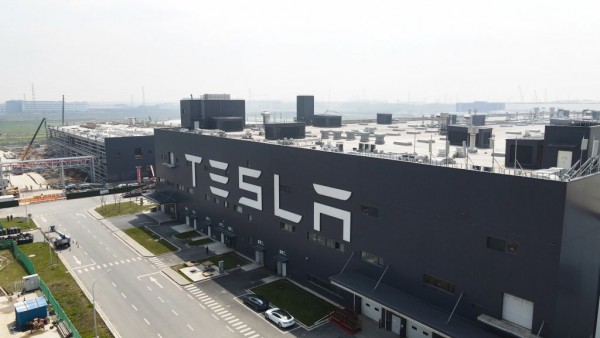Technology
The Rise of China in Car Manufacturing and Its Implications for European Manufacturers: A Comprehensive Analysis  By Sofie G
By Sofie G
 July 1st, 2023 In recent years, China has emerged as a global powerhouse in car manufacturing, surpassing Europe in electric car exports. This shift has significant implications for European manufacturers, as they face increasing competition from Chinese automakers. This article provides a comprehensive analysis of the rise of China in car manufacturing and examines the challenges and opportunities it presents to European manufacturers. It explores the factors driving China's success in the automotive industry, including government support, technological advancements, and market demand. Furthermore, it delves into the potential impact on European manufacturers, considering factors such as market share, technological innovation, and regulatory frameworks. By understanding the dynamics of China's automotive industry and its impact on Europe, stakeholders can develop strategies to navigate the changing landscape and ensure future competitiveness.
July 1st, 2023 In recent years, China has emerged as a global powerhouse in car manufacturing, surpassing Europe in electric car exports. This shift has significant implications for European manufacturers, as they face increasing competition from Chinese automakers. This article provides a comprehensive analysis of the rise of China in car manufacturing and examines the challenges and opportunities it presents to European manufacturers. It explores the factors driving China's success in the automotive industry, including government support, technological advancements, and market demand. Furthermore, it delves into the potential impact on European manufacturers, considering factors such as market share, technological innovation, and regulatory frameworks. By understanding the dynamics of China's automotive industry and its impact on Europe, stakeholders can develop strategies to navigate the changing landscape and ensure future competitiveness. 
The global automotive industry has witnessed a remarkable transformation in recent years, with China emerging as a dominant force in car manufacturing. This article aims to shed light on the rise of China in the automotive sector and analyze its implications for European manufacturers. It will delve into the historical evolution of China's automotive industry, examine its dominance in electric car production, explore the challenges faced by European manufacturers, outline strategies for European manufacturers to remain competitive, and discuss potential opportunities for collaboration and cooperation between China and Europe. Ultimately, this analysis seeks to provide insights into the changing dynamics of the global automotive industry and equip European manufacturers with the knowledge to adapt and thrive in this evolving landscape.
Historical Evolution of China's Automotive Industry
China's automotive industry has undergone a remarkable evolution over the years. Initially faced with numerous challenges, such as limited domestic demand and inadequate infrastructure, the sector received significant government support and foreign investments. Government initiatives, including favorable policies and incentives, played a crucial role in driving growth and fostering technological advancements. Additionally, partnerships and joint ventures with foreign automakers facilitated the transfer of knowledge and expertise, propelling China's automotive industry forward.
China's Dominance in Electric Car Production
One of the key factors contributing to China's rise in car manufacturing is its dominance in electric vehicle (EV) production. China has experienced exponential growth in the adoption of electric vehicles, thanks to robust government incentives and regulations promoting their use. The country has made substantial investments in EV manufacturing, leading to technological advancements and cost reductions. Consequently, Chinese automakers have expanded their EV exports, challenging European manufacturers in the global market.
Challenges Faced by European Car Manufacturers
The increasing dominance of Chinese car manufacturers presents several challenges for their European counterparts. European manufacturers must contend with fierce competition in their home markets as Chinese automakers make significant inroads. Moreover, changing consumer preferences, particularly a shift towards electric vehicles, pose additional challenges for European manufacturers. They must also address the cost competitiveness of Chinese manufacturers, intellectual property concerns, and technology transfer issues.
Strategies for European Car Manufacturers
To remain competitive in the face of China's rise in car manufacturing, European manufacturers must adopt strategic approaches. Embracing electric vehicle technology and innovation is crucial, along with strengthening partnerships and collaborations to leverage shared knowledge and resources. European manufacturers should also invest in research and development to drive technological advancements and differentiate themselves in the market. Additionally, addressing regulatory challenges and advocating for supportive policy frameworks will enable European manufacturers to navigate the evolving landscape successfully.
Opportunities for Collaboration and Cooperation
While Chinese manufacturers pose challenges to their European counterparts, there are also opportunities for collaboration and cooperation. European manufacturers can explore partnerships with Chinese companies, enabling the sharing of best practices and technological advancements. Joint ventures and strategic alliances can also be explored to capitalize on each other's strengths and gain access to new markets. Furthermore, European manufacturers can leverage China's growing domestic market, which presents significant opportunities for expansion and revenue generation.
Future Outlook and Conclusion
China's rise in car manufacturing is poised to continue, reshaping the global automotive industry. European manufacturers must recognize the long-term implications of this shift and take proactive measures to adapt and remain competitive. By embracing electric vehicle technology, strengthening partnerships, investing in research and development, and addressing regulatory challenges, European manufacturers can navigate the changing landscape effectively. Collaboration and cooperation between China and Europe also hold potential for mutual benefits. Ultimately, success in the face of increasing competition from China hinges on the ability of European manufacturers to demonstrate adaptability, innovation, and strategic thinking.
In conclusion, the rise of China in car manufacturing, particularly in the electric vehicle sector, has significant implications for European manufacturers. By understanding the factors driving China's success, recognizing the challenges faced by European manufacturers, and implementing appropriate strategies, European manufacturers can position themselves for future competitiveness in the evolving global automotive industry.
Facebook
WhatsApp

 By Sofie G
By Sofie G  July 1st, 2023
July 1st, 2023 